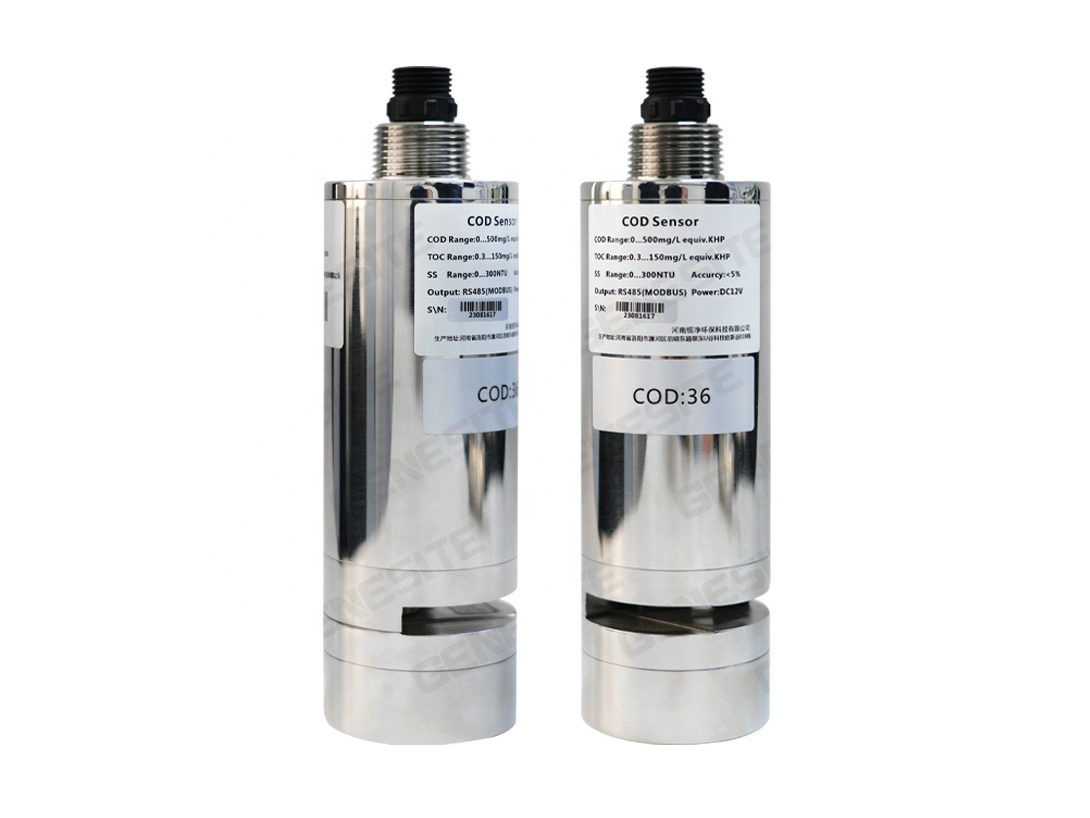Why Your Business Needs Reliable COD Sensors for Compliance
Aug 21,2025

Why Your Business Needs Reliable COD Sensors for Compliance
Understanding COD Sensors: The Basics
COD sensors are crucial instruments employed to measure the amount of organic compounds in water. By quantifying the oxygen required to oxidize these compounds, COD sensors provide valuable data on water quality, which is essential for various industries, including wastewater treatment, pharmaceuticals, and food and beverage manufacturing.
What is COD and Why Does it Matter?
Chemical Oxygen Demand (COD) serves as an indicator of the level of pollution in water bodies. High COD levels often signify the presence of harmful organic substances, which can lead to environmental degradation. Monitoring COD is vital for industries that discharge wastewater, as it helps assess the impact of their activities on local water systems.
The Importance of Compliance in Industries
Compliance with environmental regulations and standards is not just a legal requirement; it is also a critical component of corporate social responsibility. Failing to comply can result in hefty fines, legal actions, and damage to a company’s reputation. Reliable COD sensors play a vital role in ensuring compliance by providing accurate and timely data that supports regulatory reporting and internal assessments.
Regulatory Frameworks Surrounding COD
Various regulations govern water quality across different sectors. For example, the Environmental Protection Agency (EPA) in the United States mandates specific COD limits for industrial wastewater discharges. Understanding these regulations is fundamental to implementing effective monitoring systems, and reliable COD sensors can facilitate compliance by ensuring that businesses stay within the required limits.
How Reliable COD Sensors Enhance Operational Efficiency
Integrating reliable COD sensors into your operations not only aids compliance but also enhances overall efficiency. These sensors enable continuous monitoring of water quality, allowing for real-time adjustments to processes.
Real-Time Monitoring: A Game Changer
With real-time data, businesses can promptly identify and address quality issues before they escalate. This proactive approach minimizes downtime, reduces waste, and optimizes resource use. Reliable COD sensors contribute to a leaner operation, ultimately impacting the bottom line positively.
Choosing the Right COD Sensors for Your Business
Selecting the right COD sensors requires careful consideration of several factors to ensure they meet your specific needs.
Key Features to Look For
- **Accuracy and Precision**: Choose sensors that provide consistent and reliable readings. This is essential for compliance reporting and operational adjustments.
- **Ease of Use**: User-friendly interfaces and straightforward calibration processes can significantly reduce operational burden.
- **Durability and Maintenance**: Opt for sensors that are robust and require minimal maintenance, thus ensuring longevity and reducing operational costs.
Integration with Existing Systems
Consider how easily the COD sensors can integrate with your current monitoring systems. The ability to connect with data management systems enhances data analysis and reporting capabilities, facilitating informed decision-making.
Implementing COD Sensors: Steps to Success
Implementing COD sensors in your business requires a well-thought-out strategy.
Conducting a Needs Assessment
Begin by assessing your specific requirements. Identify the parameters you need to monitor, the volume of water processed, and the frequency of testing. This assessment will guide your selection process.
Training and Best Practices
Ensure that staff members are adequately trained in using the sensors and interpreting the data. Establish best practices for routine maintenance and calibration to uphold accuracy and reliability.
Regular Calibration for Accurate Results
Regular calibration of COD sensors is essential to maintain accuracy. Establish a routine calibration schedule and ensure personnel are trained in this process.
Case Studies: Success Stories with COD Sensors
Many businesses have successfully integrated COD sensors into their operations, demonstrating their importance in compliance and efficiency.
Case Study 1: Manufacturing Sector
A food and beverage manufacturer faced challenges with wastewater compliance. By implementing reliable COD sensors, they achieved consistent monitoring of their water discharge, resulting in improved compliance with regulatory standards and a significant reduction in penalties.
Case Study 2: Wastewater Treatment Facilities
A municipal wastewater treatment facility deployed COD sensors to monitor incoming wastewater streams. This proactive measure allowed them to identify high pollutant loads early, facilitating immediate action and ensuring compliance with local discharge permits.
Future Trends in COD Sensor Technology
As technology advances, the capabilities of COD sensors continue to evolve.
Innovations on the Horizon
Emerging technologies like IoT (Internet of Things) integration promise to enhance the functionality of COD sensors. Smart sensors that can communicate data automatically to centralized databases will streamline monitoring efforts and improve compliance management.
FAQs about COD Sensors
1. What is the primary function of COD sensors?
COD sensors measure the concentration of chemical oxygen demand in water, indicating the level of organic pollutants.
2. How often should COD sensors be calibrated?
Routine calibration of COD sensors is recommended at least monthly, or more frequently depending on usage and manufacturer guidelines.
3. Can COD sensors be used for all types of water bodies?
Yes, COD sensors are versatile and can be applied in various contexts, including industrial wastewater, surface water, and effluent monitoring.
4. What are the consequences of non-compliance?
Non-compliance with COD regulations can result in fines, legal issues, and damage to a company's reputation.
5. How do reliable COD sensors contribute to sustainability?
By enabling accurate monitoring and management of water quality, reliable COD sensors help reduce pollution and promote sustainable practices in industries.
Conclusion
In conclusion, reliable COD sensors are indispensable tools for businesses striving to achieve compliance with environmental regulations. They not only facilitate accurate monitoring of water quality but also enhance operational efficiency through timely data collection and analysis. As industries face increasing scrutiny over their environmental impact, investing in reliable COD sensors will not only help meet compliance requirements but also contribute to a more sustainable future. Embrace the technology of COD sensors and position your business at the forefront of environmental responsibility and operational excellence.
TAG:
PREVIOUS:
Contact Us
E-mail :
andrew@genesit1.com
Phone:
+8615896508337
Address:
Chanhe Industrial Park,LuoYang City, Henan Province,China


